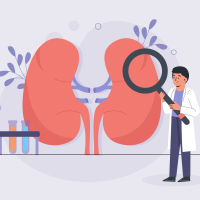
What is the issue?
Fatigue is a frequent and debilitating symptom that can limit life participation in people receiving dialysis. Fatigue is linked to impaired quality of life, cardiovascular disease, death and depression in people on dialysis. Several potential interventions, including drugs or other non-pharmacological treatments (e.g. exercise, diet, massage, aromatherapy, acupressure), have been evaluated for their effect on fatigue in people on dialysis.
What did we do?
We evaluated whether drugs or other non-pharmacological interventions are beneficial for adults and children receiving haemodialysis or peritoneal dialysis to manage fatigue. We evaluated all clinical studies available and summarised the results. We evaluated how certain we could be about the evidence related to interventions for fatigue using a system called "GRADE".
What did we find?
Ninety-four studies involving 8191 randomised participants were available. Patients in the studies were given a drug, non-pharmacological intervention, standard care or a sugar pill (placebo). The treatment they received was decided by random chance. The studies were generally short-term (over a few months). There were no studies in children. Exercise, aromatherapy, massage and acupressure improve fatigue compared to placebo or standard care. Drugs or other non-pharmacological interventions have uncertain effects on fatigue in people on dialysis.
Conclusions
Exercise, aromatherapy, massage and acupressure improve fatigue compared to placebo or standard care. It remains uncertain whether drugs or other non-pharmacological interventions have any impact on fatigue in people on dialysis when compared to a sugar pill, standard care or other treatments for fatigue.

